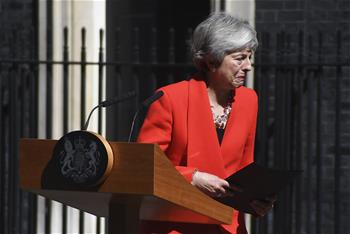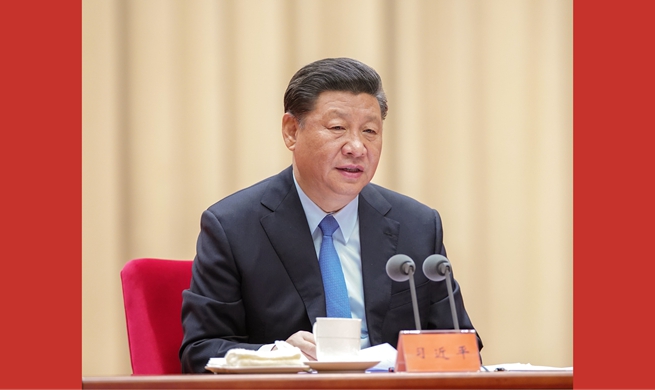WASHINGTON, June 2 (Xinhua) -- A renowned economist said that U.S. President Donald Trump's plan to impose a 5-percent tariff on all imposed goods from Mexico "raises a danger" to the U.S. and global economies "well beyond" his tariff measures to date, which should be a "wakeup call" to financial markets.
In an article published on Friday, Adam Posen, president of the Washington-based Peterson Institute for International Economics, said threatening Mexico with a tariff over the migration issue -- despite the overall trade agreement in the United States-Mexico-Canada Agreement (USMCA) -- "marks a turning point."
If tariffs can be raised by "unilateral presidential decree," linked to border policy not the economic relationship, Posen said, markets will realize that it's not likely for the U.S. president to deliver a trade deal with its trade partners. He added that "no government will want to make a deal with the United States at all."
"By weaponizing tariffs, Trump makes evident that he is driven in trade policy by his ideological and perhaps political agenda rather than any tactics to improve U.S. bargaining leverage," Posen said.
The U.S. president on Thursday said he would impose a 5-percent tariff on all imported Mexican goods beginning June 10 so as to pressure the country to halt undocumented migrants crossing the border, and will gradually increase tariffs until the problem is remedied.
The proposed measures, Posen said, have already led to a "widespread selloff," which is different from previous cases. That even some of the safe-haven flows are going into German government securities and the euro, away from U.S. Treasuries or dollars, strongly suggests that "concerns about the U.S. economy are rising," he said.
The macroeconomic impact of the latest actions is likely to be much higher now than the direct effect of the tariffs themselves, Posen warned. First, he expected a "significant persistent" equity market drop, which will have wealth effects on consumption and investment. Second, the delay and diminishment of productive cross-border investment, including investments into the United States, will worsen.
Additionally, he argued, the direct impact on the auto industry is bound to be "sharp and fast," if the 5-percent tariff is implemented.













